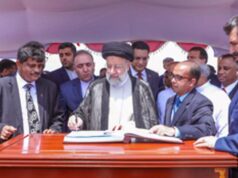Where exactly did the NDA Govt. go wrong on CAA?

By
Colonel Awadhesh Kumar
Actually the Government of the day forgot to take into account that COMMON SENSE is not that COMMON .
It presumed that every one is fully aware of the Citizenship provisions as enshrined in the Constitution of India . It then presumed that every one is aware of the amendments earlier carried out through CAA to these provisions . It also presumed that every one will first read the current amendments and then only comment on it or show any reactions to it . It also presumed that no Indian, even if he had not voted for the political party forming the current government, will go against the CAA because it was in the first place committed by Mahatma Gandhi and other leaders right after independence . Once Pakistan started going back on the Nehru – Liaquat Pact, the Congress Government initiated the action to pass the Citizenship Act in 1955 .
The Citizenship Act was first amended in 1985 after the Assam Accord was signed, wherein the Indian government of Prime Minister Rajiv Gandhi agreed to identify foreign citizens, remove them from the electoral roles, and expel them from the country. The Citizenship Act was further amended in 1992, 2003, 2005 and 2015. Thus it was first introduced and backed by those who are now in the opposition .
So naturally government is surprised that though CAA has nothing to do with any of the citizens of India, it has still agitated a certain section for whom ignorance is bliss .
The Indian leaders from all communities had fought for independence against the Britishers . However towards the end they accepted the partition of the country on the basis of religion . Then Pakistan was declared a Muslim country and soon the persecution of the minorities commenced there . It then became incumbent on India to provide citizenship to these persecuted minorities ( (created as a result of partition ) to provide Indian citizenship if they so chose .
Most of these people started entering India sometime after 1947 without valid papers as a trickle which in 1971 became a flood . With them soon started entering even other Bangladesh / Pakistan / Afghan nationals ( not of minority communities ) to seek better economic prospects .
The Government of India right from 1947 onwards should have and even wanted to grant them citizenship but due to sheer lethargy followed by indifference followed by politics, the matter kept getting delayed till it has become very difficult to distinguish between those minorities and those others entering India for bettering their economic prospects .
Now no country in the World permits any foreigner irrespective of religion to enter without valid papers . No Christian from any country not even from Britain will be permitted to enter USA without valid papers and will certainly not be granted any automatic citizenship . Similarly no Middle East country will permit Muslims of other countries to enter from Pakistan, Bangladesh, India or any other neighbouring country . New York times writing uninformed column on Indian CAA has also never advocated grant of American citizenship to the Rohingiyas . USA can certainly settle all of them in Texas, Nevada or even Alaska, without an iota of any kind of problem .Have they done so? Are they willing?
Coming to the majority community in Pakistan or Bangladesh or citizens of any country of any religion, they too may apply for Indian citizenship under the existing Indian citizenship law either if they are persecuted on political grounds ( it is called asylum seeking ) or if they have stayed for 12 years . However they need to apply for it and prove their credentials, it will not be automatic . Till grant of Indian citizenship if approved, they will be treated as aliens . In case of illegal entry they will be persecuted and deported if not granted with citizenship . This procedure (existing in most of the democratic countries ) is no way connected with the present CAA .
Extracts From Constitution of India :
Article Five : Citizenship During the Commencement of the Constitution:
During the commencement of the Indian Constitution, each person who has his or her domicile in the territory of India and :
(a) who was born in the Indian territory; or
(b) either of whose parents was born in the Indian territory; or
(c) An individual who has been ordinarily resident in the Indian territory for at least 5 years immediately preceding such commencement, shall be a citizen of India.
Article Six: Rights of Citizenship of Certain Persons who have Migrated to India Territory from Territory of Pakistan
The sixth citizenship article of the Indian constitution provides citizenship rights to migrants from Pakistan to India.
Regardless of anything in article 5, a person who has migrated to the territory of India from the territory currently enclosed in Pakistan shall be deemed to be an Indian citizen at the commencement of this Constitution if –
If a person migrated from Pakistan to India before 19 July 1948 shall be considered as an Indian citizen if either of the person’s parents or any of his grandparents were born in India as expressed in the Government of India act, 1935 and has been living or residing since the date of migration. For people who migrated after 19 July 1948, they should be registered as a citizen of India by an officer from the Government of India but for registration, the subjected person has to be a resident in the territory of India for a minimum of six months, preceding the date of his application.
Article Seven: Rights of Citizenship of Certain Migrants to Pakistan
Regardless of anything in citizenship article 5 & 6, a person who has after the 1st day of March 1947, migrated from the Indian territory now encompassing in Pakistan shall not be deemed to be a citizen of India:
Given that nothing in this article shall apply to a person who after having migrated to the territory now included in Pakistan has returned to the Indian territory under a permit for resettlement or returning permanently issued by the authority of any law and every such person shall for the purposes of clause (b) of article 6 be deemed to have migrated to the territory of India after the 19th day of July 1948.
Article Eight: Rights of Citizenship of Certain Persons of Indian Origin Residing Outside India
The eighth article reads that any person who or either of whose parents or grandparents were born in India as stated in the Government of India Act 1955 and who is residing ordinarily in any country outside India shall be considered to be a citizen of India.
If he has registered as a Citizen of India by an Indian diplomatic or consular representative in that country on an application made by him or her in the prescribed document form to such diplomatic or consular representative, whether before or after the commencement of the Constitution.
Article Nine: Persons Voluntarily Acquiring Citizenship of a Foreign State Not to be Citizens
According to article 9, the Constitution of India does NOT allow dual citizenship, i.e., holding Indian citizenship and citizenship of a foreign country simultaneously.
Article Ten: Continuance of the Rights of Citizenship
The Article 10 states that every person who is or is deemed to be a citizen of India in any of the preceding provisions of this Part shall, subject to the provisions of any law that may be made by Parliament, still be a citizen.
Article Eleven: Parliament to Regulate the Right of Citizenship by Law
Given the already declared provisions in this part, there is nothing else that can take away the power of Parliament to make any provision with respect to the acquisition and termination of citizenship and any other matter regarding the same.
Under the Citizenship Act of 1955 following methods are also applicable for Indian citizenship :
Citizenship by registration
The Central Government may, on an application, register as a citizen of India under section 5 of the Citizenship Act 1955 any person (not being an illegal migrant) if s/he belongs to any of the following categories:
a person of Indian origin who is ordinarily resident in India for seven years before making application under Section 5(1)(a) (throughout the period of twelve months immediately before making application and for six years in the aggregate in the eight years preceding the 12 months).a person of Indian origin who is ordinarily resident in any country or place outside undivided India ;a person who is married to a citizen of India and is ordinarily resident in India for seven years before making an application for registration;minor children of persons who are citizens of India;a person of full age and capacity whose parents are registered as citizens of India.a person of full age and capacity who, or either of his parents, was earlier citizen of independent India, and has been residing in India for one year immediately before making an application for registration;a person of full age and capacity who has been registered as an overseas citizen of India for five years, and who has been residing in India for one year before making an application for registration.
Citizenship by naturalization
Citizenship of India by naturalization can be acquired by a foreigner who is ordinarily resident in India for 12 years (throughout the period of 12 months immediately preceding the date of application and for 11 years in the aggregate of 14 years preceding the 12 months) and other qualifications as specified in Section 6 (1) of the Citizen Act,1955



